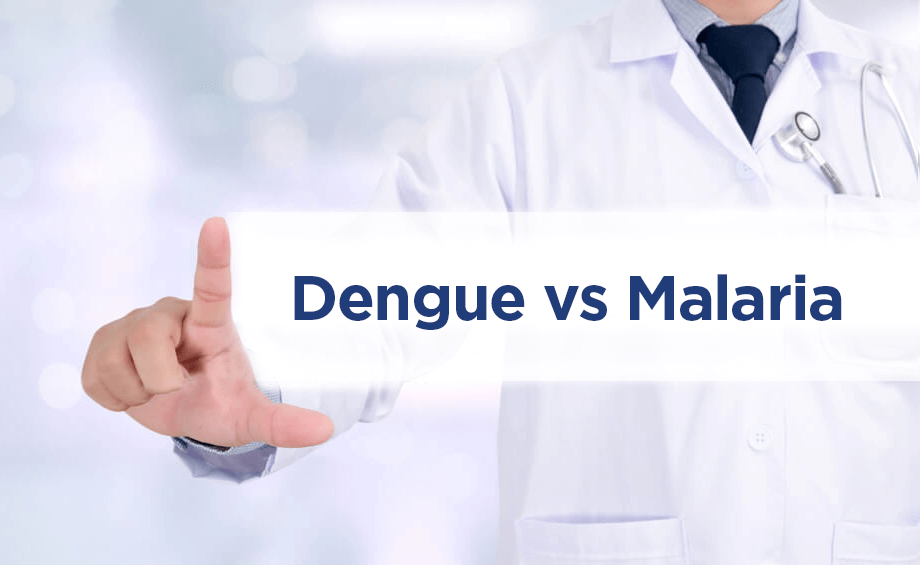
While we commonly use Dengue and Malaria as synonymous to each other, they are not. It is essential to know the difference between the two in order to be prepared for all situations.
Symptoms of Dengue
Dengue is a viral infection caused by the dengue virus that is transmitted through the bite of the infected Aedes mosquito. The most commonly observed dengue symptoms are as follows:
– Sudden, high fever (as high as 41 degrees Celsius)
– Severe headaches and pain behind the eyes
– Severe joint, muscle and abdominal pain
– Extreme fatigue and tiredness
– Nausea and vomiting
– Skin rashes and easy bruising
– Sudden drop in platelet count
– Mild to active bleeding
– Swollen lymph nodes because of underlying fever
You can read more about the symptoms observed in Dengue here.
Symptoms of Malaria
Malaria is a serious disease caused by the transmission of Plasmodium, a parasitic protozoa, into the body through the bite of infected mosquitoes. Common symptoms of Malaria are as follows:
– Fever that runs high for 2-3 days
– Unbearable headaches
– Muscle pain and inability to do physical tasks
– Severe chills
– Heavy sweating at times
– Fatigue and tiredness
– Constant nausea
– Non-stop dry cough
– Loose motions and runny stools
You can read more about the symptoms observed in Malaria here.
What is the difference between the symptoms of Dengue and Malaria?
While a lot of symptoms like headaches and muscle pain may sound the same, it is important to be able to differentiate between the two in order to give the best possible care. Here are some interesting differences between the symptoms for Dengue and Malaria:
Incubation period of the fever
Dengue symptoms start showing as soon as 4-5 days after a bite. Malaria takes around 10-15 days to incubate and actually infect the person.
Duration of the fever
Dengue fever generally lasts for a longer duration and appears for 2-3 days. It disappears for some time and rises again, worse than before. Malaria, on the other hand, lasts for a shorter duration and comes in stages of extreme cold, sweating and extreme cold again.
Peculiar symptoms
Rashes are commonly observed in dengue only. Malaria patients do not exhibit rashes. So if you notice rashes on a sick person, there is a strong chance that they are suffering from dengue. On the other hand, if a person experiences severe chills and heavy sweating, he/she may be diagnosed with Malaria.
Platelets and RBCs
A Dengue infected person will show a massive drop in the blood platelet count whereas a person with Malaria will show infected red blood cells because that’s where the fever hits the most.
Protect yourself
Prevention is always, always better than cure. Be one step ahead by using the right mosquito repellents. Just 4 dots of Goodknight Fabric Roll-On on your clothes and you’re protected from the mosquitoes for up to 8 hours. This is made using 100% natural ingredients and hence completely safe to use on children. While indoors, switch on the 2x power of Goodknight Activ+ System. One can choose between the Normal and Activ mode, depending on the number of mosquitoes.